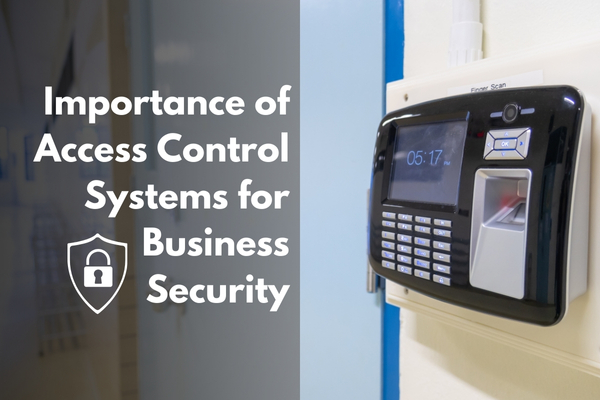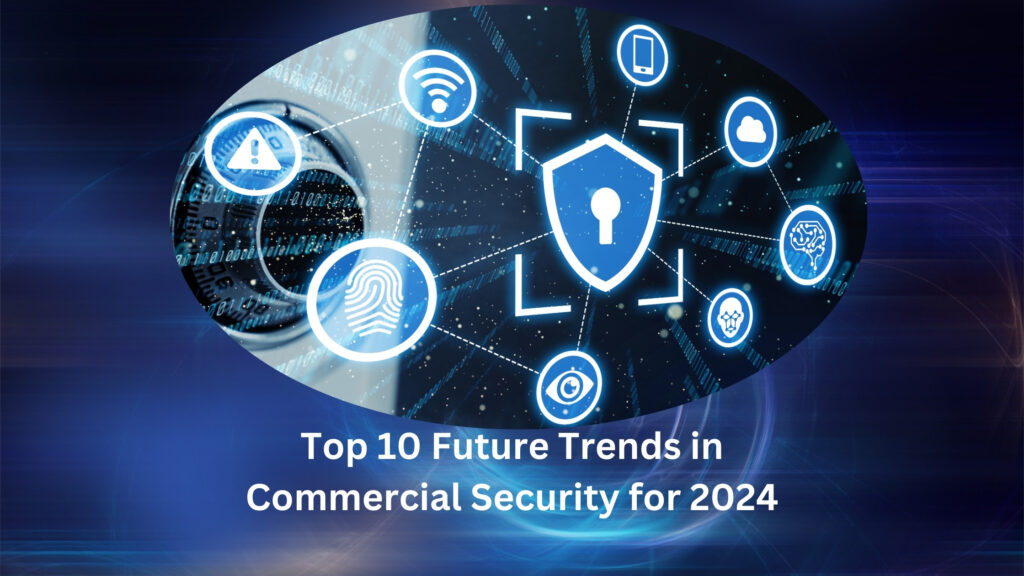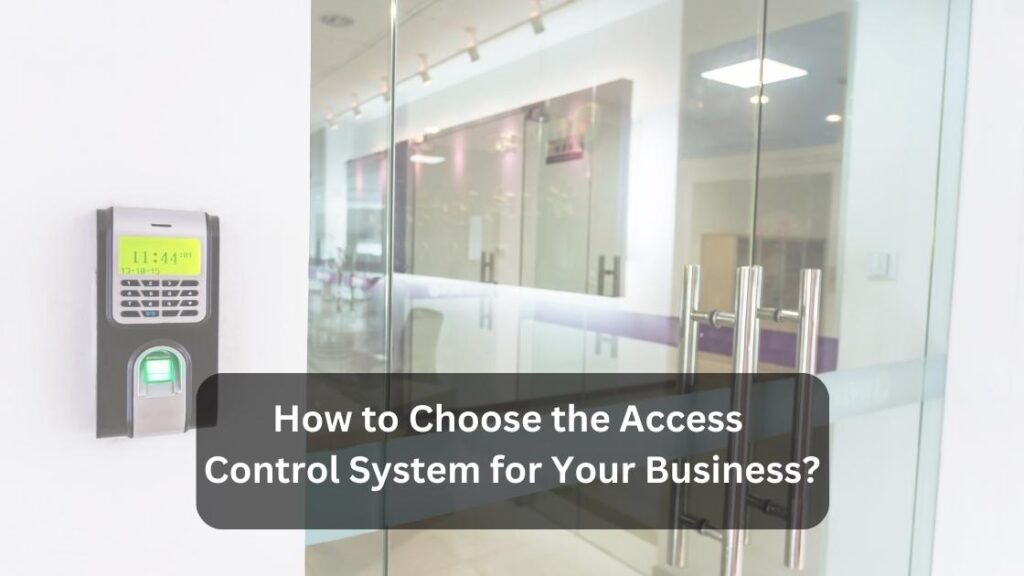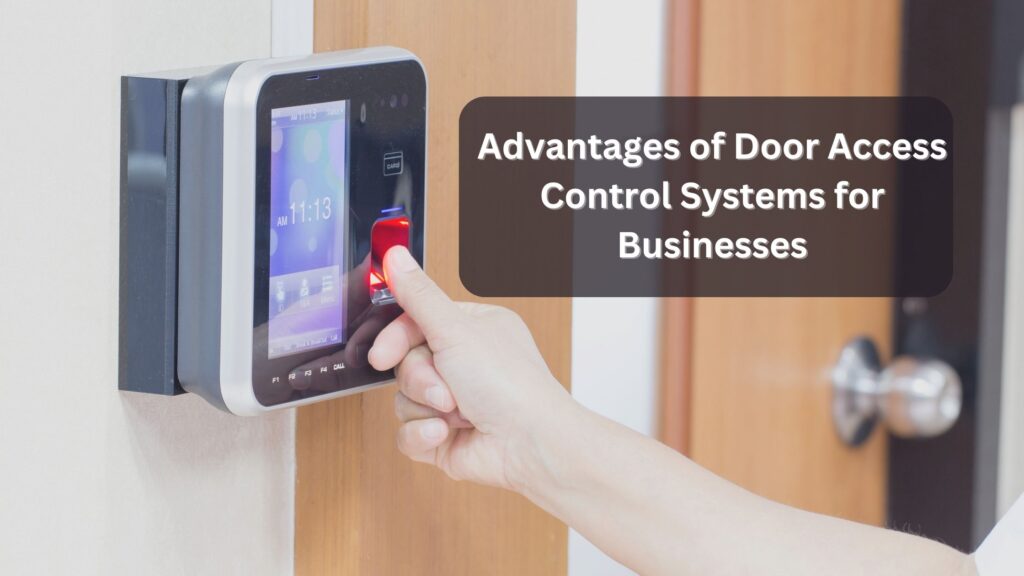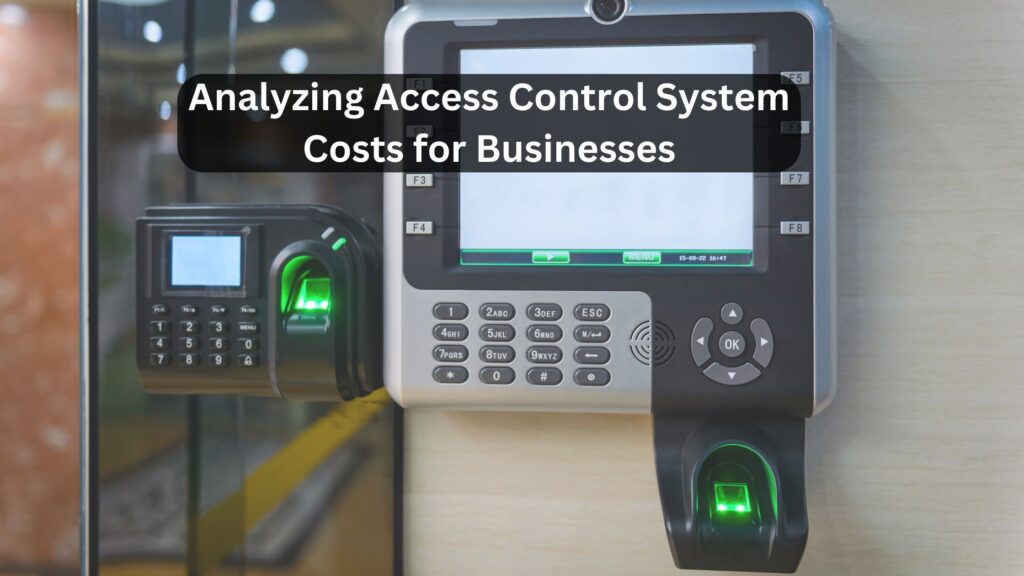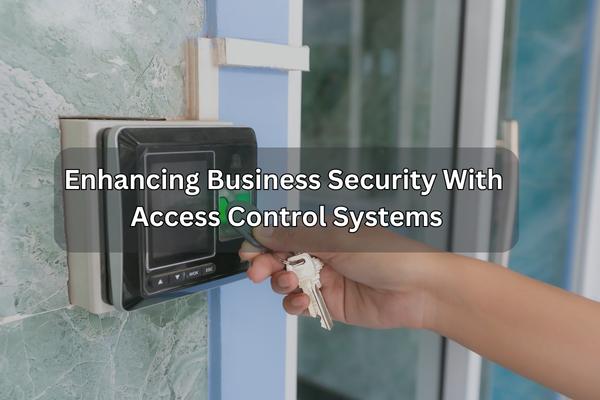Currently Empty: $0.00
Importance of Access Control Systems for Business Security
In an era dominated by technological advancements and interconnectedness, ensuring the security of a business has never been more critical. Access control systems have emerged as indispensable tools for safeguarding not only physical assets but also sensitive information. These systems play a pivotal role in fortifying business security by regulating and monitoring entry to premises, data, and resources. In this article, we will delve into the importance of access control systems security and how they contribute to overall operational success.
Contents
- What are Access Control Systems ?
- Why Access Control Security is Important?
- Data Security and Confidentiality
- Customization for Different Security Levels
- Protecting Physical Assets
- Compliance and Regulatory Requirements
- Enhancing Employee Safety
- Monitoring and Reporting
- Adaptability and Scalability
- Remote Access Management
- Integration with Other Security Systems
- Visitor Management
- Cost-Efficiency in the Long Run
- Deterrent for Unauthorized Access
- Emergency Response Preparedness
- Conclusion
What are Access Control Systems ?
Access Control Systems are comprehensive security solutions designed to regulate and monitor entry to physical premises, digital resources, and sensitive information. These systems employ various authentication methods such as key cards, biometric scanners, and PIN codes to ensure that only authorized personnel can access specific areas or data.
Beyond safeguarding physical assets, access control systems contribute to data security, compliance with regulatory requirements, and employee safety. They offer real-time monitoring, reporting capabilities, and integration with other security systems, providing business with a scalable and adaptable solution to mitigate potential risks.
Why Access Control Security is Important?
Data Security and Confidentiality
With the increasing reliance on digital technologies, protecting sensitive information has become paramount. Access control systems play a crucial role in securing digital assets by regulating access to computer systems, servers, and confidential data. Unauthorized access to critical information can lead to data breaches, financial losses, and damage to a company’s reputation. Robust access controls help prevent such incidents by restricting access to only those who require it for their roles.
Customization for Different Security Levels
Commercial access control systems offer the flexibility to customize security levels based on the sensitivity of different areas within a business. High-security zones, such as data centers or executive offices, can have stricter access controls, while common areas may have more relaxed restrictions. This customization ensures that security measures align with the specific needs and risks of different parts of the organization.
Protecting Physical Assets
Access control systems serve as the first line of defense against unauthorized access to physical premises. Traditional lock-and-key methods have proven to be inadequate in today’s dynamic business environment. Electronic access control systems, which include key cards, biometric scanners, and PIN codes, offer a higher level of security by limiting access to authorized personnel only. This not only protects valuable assets such as equipment and inventory but also mitigates the risk of internal theft.
Compliance and Regulatory Requirements
Many industries are subject to strict regulations governing the protection of sensitive data and maintaining a secure environment. Access control systems help businesses adhere to these regulations by providing an auditable trail of who accessed what, and when. This not only ensures compliance but also simplifies the process of demonstrating adherence during regulatory audits.
Enhancing Employee Safety
Business security extends beyond securing property; it includes the safety of employees. Access control systems help create a secure working environment by preventing unauthorized individuals from entering sensitive areas. In emergency situations, these systems can be instrumental in quickly locking down specific zones, ensuring the safety of employees and reducing the potential for harm.
Monitoring and Reporting
Access control systems provide businesses with valuable insights through real-time monitoring and reporting capabilities. Administrators can track employee movements, identify suspicious activities, and generate reports on access patterns. This data can be instrumental in investigating security incidents, identifying potential vulnerabilities, and improving overall security protocols.
Adaptability and Scalability
Access control systems are scalable and adaptable to the evolving needs of a business. Whether a company is expanding its physical space, integrating new technologies, or adjusting security protocols, access control systems can be easily modified to accommodate these changes. This flexibility ensures that the security infrastructure remains robust and effective over time.
Remote Access Management
In the contemporary globalized business environment, remote access management stands as a critical necessity. Cloud-based solutions within access control systems empower administrators to remotely oversee and regulate access. This is especially advantageous for organizations with multiple locations or those requiring off-site security management. The benefits of cloud-based access control include heightened flexibility, efficient centralized administration, and the ability to respond swiftly to security events, ensuring businesses can maintain robust security protocols across diverse operational landscapes.
Integration with Other Security Systems
Access control systems can be seamlessly integrated with other security systems, such as video surveillance and intrusion detection. This integration enhances the overall security infrastructure by providing a comprehensive view of security events. For example, if an unauthorized access attempt is detected, the system can trigger alarms and simultaneously capture video footage for further investigation.
Visitor Management
Business often receive various visitors, including clients, vendors, and contractors. Access control systems enable efficient visitor management by allowing organizations to issue temporary access credentials. This ensures that visitors can only access approved areas during their visit, maintaining security without compromising hospitality.
Cost-Efficiency in the Long Run
While implementing access control systems may involve an initial investment, they prove to be cost-effective in the long run. The prevention of theft, vandalism, and unauthorized access helps business avoid potential financial losses. Moreover, the ability to remotely manage access and respond to security incidents can reduce the need for on-site security personnel, resulting in operational cost savings.
The mere presence of access control systems can act as a deterrent for potential intruders. Knowing that a facility has robust security measures in place, including electronic access controls, can dissuade individuals with malicious intent. This proactive approach to security helps prevent security breaches before they occur.
Emergency Response Preparedness
Access control systems contribute to emergency response preparedness by providing quick and controlled lockdown capabilities. In the event of a security threat or emergency situation, administrators can swiftly restrict access to specific areas, allowing for a more organized and efficient response from security personnel and first responders.
Conclusion
In an age where the success of a business is intricately linked to its ability to protect physical and digital assets, access control systems have become indispensable. From safeguarding physical premises and assets to securing sensitive data, these systems contribute significantly to overall business security. Investing in a comprehensive access control system not only protects against potential threats but also fosters a secure and productive environment, ultimately contributing to the long-term success of the business .


